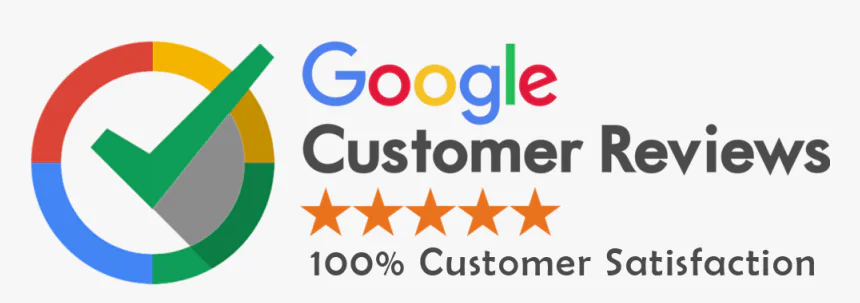SMS messaging has grown into one of the most trusted and effective ways for businesses to connect with their audience. Whether it’s a reminder, promotion, update, or alert, SMS delivers the message instantly and directly into the hands of customers. But with so many SMS gateway providers in the market, selecting the right one can be confusing.
To help you make a confident decision, this article shares practical and useful tips to choose the best SMS gateway for your business. Whether you’re a startup, a retail chain, or a service provider, these tips will save time, money, and effort while boosting communication efficiency.
What Is an SMS Gateway?
An SMS gateway is a system that lets businesses send text messages from computers, apps, or web platforms to mobile phones. It acts as a bridge between your software and mobile networks, enabling bulk SMS, 2-way communication, alerts, and even voice and TTS (Text-to-Speech) messages.
The gateway can be integrated into websites, CRM systems, mobile apps, and more using APIs. Some advanced SMS gateways also support features like delivery reports, virtual numbers, message scheduling, and automation.
Why It’s Important to Choose the Right Provider
Not all SMS gateways are the same. Some may offer low prices but poor delivery speed. Others may provide excellent service but limited country reach. The right provider ensures reliable message delivery, data protection, integration support, and responsive customer service.
A poor gateway can cause delays, undelivered messages, and frustrated customers. A good one keeps your communication flowing, even during peak traffic times.
Secret Tips to Choose the Best SMS Gateway
1. Check Global Reach and Network Coverage
If your business serves customers in different countries, you need a gateway that offers wide international coverage. Look for a provider that supports sending messages to at least 150–200 countries and works with multiple telecom operators. This ensures your messages get delivered, even in remote regions.
2. Evaluate API Integration Options
The right SMS gateway should offer APIs that are easy to integrate with your existing software. Choose a platform that supports:
- HTTP / HTTPS API
- SMTP for email-to-SMS
- RESTful API for apps and custom systems
The APIs should come with clear documentation and code samples in various programming languages like PHP, Python, Java, etc. This saves time during integration and minimizes the need for technical support.
3. Look for a Smart Web Dashboard (GUI)
A user-friendly dashboard helps you manage campaigns, monitor delivery status, track reports, and manage sub-accounts. The interface should be:
- Easy to understand
- Quick to load
- Accessible from any browser
- Secure and responsive
This is especially helpful for non-technical users who want to schedule messages, export reports, or manage user access.
4. Ask About 2-Way Messaging and Virtual Numbers
Two-way SMS lets customers reply to your messages, which is great for feedback, confirmations, or customer support. Choose a provider that offers:
- 2-Way SMS support
- Dedicated or shared virtual numbers
- Shortcodes and longcodes
Virtual numbers can also be used to receive incoming SMS, automate responses, and manage conversations within your app or dashboard.
5. Delivery Speed and Latency Matter
Delivery rate and speed can make or break time-sensitive campaigns. Choose a provider that guarantees:
- Message delivery within 5 seconds
- Uptime of at least 99.9%
- Direct connections with telecom operators
Ask for delivery logs or success rate reports. A high delivery rate (98%+) means your customers are actually receiving your messages.
6. Voice, Text-to-Speech (TTS), and Multi-Channel Support
A modern SMS gateway does more than just sending text. Look for advanced features like:
- Voice call capability
- Text-to-Speech messaging
- WhatsApp or email integration
- Language support for Arabic, English, etc.
These features help expand your communication strategy and make your messages more interactive.
7. Security and Data Compliance
Security is crucial, especially when dealing with customer data or financial messages. Make sure the provider follows:
- TLS/SSL encryption for data transfer
- End-to-end message security
- Two-factor authentication (2FA)
- GDPR, HIPAA, or local privacy regulations (e.g., UAE TRA compliance)
- DND filtering and opt-out management
This protects your business from data leaks and builds trust with customers.
8. Transparent Pricing and Cost Efficiency
Avoid gateways that hide fees or force you into long contracts. Good providers offer flexible pricing such as:
- Pay-as-you-go (per SMS)
- Monthly or volume-based packages
- No setup or hidden charges
Also, ask whether incoming messages are free and if there are extra charges for features like reports, virtual numbers, or delivery receipts.
9. Customer Support and Onboarding
Reliable support makes a big difference during setup or issue resolution. Choose providers that offer:
- 24/7 live chat or phone support
- Email ticketing system
- Dedicated account manager
- Quick onboarding and API integration help
Test their response time before signing up by asking a few technical or pricing questions.
Use Cases: How Different Businesses Use SMS Gateways
To help you understand how this technology fits in different industries, here are a few examples:
Retail Stores
- Sending promotional discounts
- Stock arrival alerts
- Customer feedback collection
Healthcare
- Appointment reminders
- Prescription pickup notifications
- COVID-19 health updates
Logistics
- Delivery confirmation
- Driver OTP verification
- Delay alerts
Education
- Fee payment reminders
- Emergency announcements
- Class schedule updates
Real Estate
- Lead generation follow-ups
- Viewing schedule confirmations
- Project status messages
Recommended Checklist Before You Buy
Here’s a simple checklist you can follow before making your final decision:
- Wide international SMS reach
- API support with documentation
- Real-time reporting and logs
- -way SMS and virtual numbers
- Voice and TTS options
- Secure and compliant platform
- Transparent pricing and flexible plans
- Active customer support
- Integration examples for developers
- GUI for non-technical users
Beginner FAQs About SMS Gateways
What is the use of an SMS Gateway for a small business?
You can send promotions, updates, OTPs, and reminders at low cost and with high engagement.
Can I send SMS from my website?
Yes, most gateways offer APIs or online panels to send SMS directly from your website or app.
How long does it take to set up?
Integration with basic API and GUI usually takes a few hours to 1 day.
Do I need to know programming?
No, you can use the web dashboard. But for advanced integration, some coding knowledge is helpful.
Can I track which messages were delivered?
Yes, delivery reports and logs are part of most dashboards.
Side-by-Side Comparison Table (Example)
| Feature | Gateway A | Gateway B | Gateway C |
|---|---|---|---|
| Global Reach | 200+ countries | 150+ countries | 180+ countries |
| 2-Way SMS | ✅ | ✅ | ❌ |
| Voice & TTS | ✅ | ❌ | ✅ |
| GUI Dashboard | ✅ | ✅ | ✅ |
| Delivery Rate | 99.2% | 98.7% | 97.5% |
| Developer Docs | ✅ | ✅ | ❌ |
| Free Incoming SMS | ✅ | ❌ | ✅ |
| Monthly Plans Available | ✅ | ✅ | ✅ |
| DND Filtering | ✅ | ✅ | ✅ |
| GDPR Compliance | ✅ | ✅ | ❌ |
Final Thoughts
Choosing the right SMS gateway is not just about sending messages. It’s about creating a smooth, reliable communication channel between your business and your customers. By focusing on real needs — such as delivery speed, integration options, global reach, and customer support — you can find a solution that adds real value to your communication.
Don’t rush into signing up with the cheapest option. Test the platform, compare features, and speak with their support team. Whether you’re sending OTPs or promoting a product, the right SMS gateway helps you reach your audience without delay.
If you’re serious about engaging your customers and staying ahead of your competition, these tips will help you pick the perfect partner for your SMS needs.











